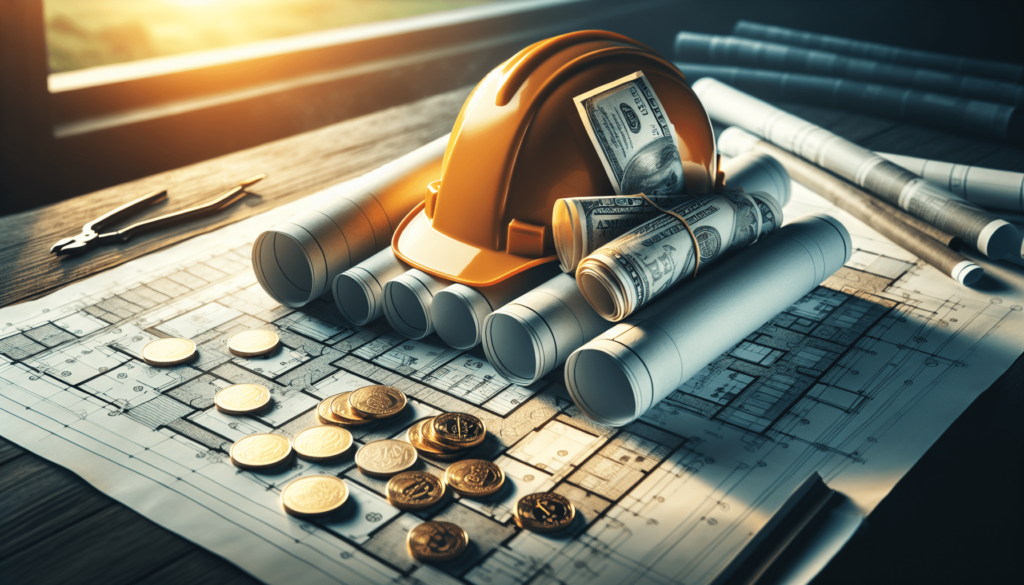Is A Construction Loan Harder To Get Than A Mortgage?
October 17, 2024 | by neoguruman@gmail.com

Have you ever considered building your dream home instead of buying one? If so, you may be wondering about the different financing options available to you and how they stack up against each other. One common question that arises is whether obtaining a construction loan is harder than getting a traditional mortgage.

Understanding Construction Loans
Before delving into the comparison, let’s clarify what a construction loan is. A construction loan is a short-term loan utilized to finance the building of a home or a significant renovation project. Unlike traditional mortgages, which provide funds for purchasing existing homes, construction loans are tailored for unique situations that often involve uncertainty.
Types of Construction Loans
There are different types of construction loans, and understanding these may help you decide what works best for you:
-
Construction-to-Permanent Loans: This type allows you to finance the construction of your home and then convert it into a permanent mortgage once the home is built. This is convenient as it consolidates your financing needs into one loan.
-
Construction-Only Loans: These loans solely cover the construction phase. After completion, you would need to secure a separate mortgage to finance the home, which can mean additional closing costs and processes.
-
Renovation Loans: If you are looking to remodel your current home, renovation loans provide the necessary funds to cover both renovations and long-term financing.
In determining which option suits you best, consider the type of home you want to build and whether you would prefer simplified financing or separate loans for construction and permanent financing.
The Mortgage Process Explained
Now that you have a clearer understanding of construction loans, what about the traditional mortgage? A mortgage is an agreement between you and a lender to borrow money to buy property. You pay back the loan, plus interest, over an agreed period, usually 15 to 30 years.
Types of Mortgages
While pondering the difference, familiarize yourself with the various types of mortgages available:
-
Fixed-Rate Mortgages: These loans have a consistent interest rate over the loan’s life, providing predictable monthly payments.
-
Adjustable-Rate Mortgages (ARMs): These usually have lower initial rates that rise over time based on market conditions, leading to fluctuating monthly payments.
-
FHA Loans: Backed by the Federal Housing Administration, these loans are designed for first-time homebuyers with lower credit scores and down payments.
Understanding these mortgage options can help you evaluate your preferences in financing, even if you decide to build your home.
Comparing Construction Loans to Mortgages
Now that you’ve tackled the basic definitions, let’s draw the comparison about how construction loans are secured against traditional mortgages. The thought of which loan is harder to get is a common concern for many.
Qualification Criteria
Generally, both construction loans and traditional mortgages have their own qualification criteria. However, obtaining a construction loan often involves stricter requirements. Here’s a basic rundown:
Income Verification
| Loan Type | Requirement |
|---|---|
| Construction Loans | Typically higher income and assets required and more detailed verification of income stability. |
| Conventional Mortgages | Standard income verification that focuses mainly on your overall creditworthiness. |
When applying for a construction loan, lenders want assurance that you have the means to cover the cost of building while also ensuring your financial stability throughout the process.
Credit Score
| Loan Type | Minimum Credit Score |
|---|---|
| Construction Loans | Generally, you should have a score of 680 or higher. |
| Conventional Mortgages | Lower scores may be accepted (around 620), especially with FHA loans. |
A good credit score is essential in receiving favorable terms, but the requirements can be more stringent for construction loans.
Down Payments
When it comes to down payments, the requirements differ:
| Loan Type | Down Payment Required |
|---|---|
| Construction Loans | Often require 20% or more, given the perceived risk of lending for construction. |
| Conventional Mortgages | Can start as low as 3% for some loans. |
You may find yourself needing to save up more for a construction loan, making the initial step a bit more challenging.
Time Frames and Processes
The timeline between construction loans and mortgages also varies. Securing a traditional mortgage may be straightforward, often taking 30 to 45 days depending on the lender.
Construction Loans Timeline
Here’s a basic overview of the construction loan process and timeline:
- Application and Approval (4-6 weeks): Must submit detailed plans, budgets, and timelines.
- Closing (1-3 weeks): Once approved, you’ll close on the loan.
- Construction Phase (varies): Construction might take several months to a couple of years, depending on the project’s nature.
As you can see, the construction timeline can feel much longer since you’ll navigate several phases before you officially move in. You can expect to remain involved during the construction phase, often coordinating with contractors and your lender.

Lender Considerations
When it comes to construction loans, lenders are more involved than with traditional mortgages, and this can affect the approval process.
Disbursement Process
Construction loans utilize a disbursement method called “draws.” Here’s how it works:
- Initial Draw: Upon closing, you’ll receive a portion of the total loan amount.
- Subsequent Draws: As work progresses, you will request additional draws based on completed milestones (foundation, framing, etc.), often confirmed by a lender or inspector.
This process adds an extra layer of complexity, as you must keep the lender informed of progress and availability of funds.
lender’s Risk Assessment
Construction loans are considered riskier for lenders due to the property not yet being built. They might conduct multiple assessments throughout the construction process to ensure everything stays on track and within budget.
Economic Factors
Another layer in this comparison comes from external factors affecting both loan types, including interest rates and the economy’s overall health. Sometimes, economic conditions can tighten lending criteria across the board, making it harder to obtain any type of loan.
Interest Rates Impact
While mortgage rates fluctuate, construction loans often carry higher rates due to their riskier profile. This can lead to higher overall costs, potentially increasing the difficulty of managing your project financially.
In varying market conditions, discuss rates with lenders to secure a deal that fits your budget, as the overall interest can vary significantly based on the loan type.
Personal Considerations
Despite the many factors at play, personal matters also influence your decisions around obtaining a construction loan or mortgage.
Financial Preparedness
Your overall financial health should guide your decision. Completing a budget and understanding your capacity for monthly payments and down payments are crucial.
Collaboration with Builders
Establishing a solid relationship with builders can yield significant advantages. In cases where builders have established relationships with lenders, they can potentially streamline the process and enhance your chances of approval.
Conclusion
Determining whether a construction loan is harder to secure than a mortgage deserves your thorough consideration. In general, construction loans can have stricter criteria, higher down payment requirements, and involve a more extended process. However, ultimately, your specific circumstances and market conditions are key to your experience.
Taking the time to educate yourself about these options and understanding the implications can help you make an informed decision for financing your dream home. If you plan to move forward, consider connecting with a financial advisor or a loan officer to discuss your options based on your unique situation and aspirations. As you embark on this journey, remember that preparation is vital, and knowing what to expect can help you navigate each step with greater confidence.
RELATED POSTS
View all

